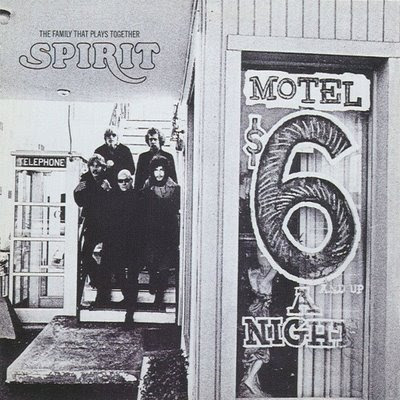
Style: psych
Country: us
Audio: lossless (ape)
Size: 311mb
Issue: Epic-Legacy (1996)
...
Read more »
|
 1970 - Som Imaginбrio
1970 - Som Imaginбrio
 1971 - Nova Estrela
1971 - Nova Estrela
 1973 - Matanзa do Porco
1973 - Matanзa do Porco
Style: psych
Audio: mp3 (128k)
Size: 94mb incl. covers
Dreams Fantasies & Nightmares:
One of Brazil's top psychedelic acts in this era. They brilliantly fused progressive rock, jazz, and danceable rock 'n' roll with a healthy dose of good humour (e.g. with lyrics like "in Nepal everything is very cheap" and "I'm gonna plant carrots in your head"). This was one of the best Brazilian groups ever and equal to most groups anywhere!
Som Imaginário existed between 1970 - 1974; They also backed Milton Nascimento, Sueli Costa, Macal and other singers on some recordings and / or live shows. In 1998 there was talk of a possible reunion.
(AMJ/VJ)
...
Read more »
|

Style: prog
Country: greece
Audio: lossless (flac, cue, log, covers)
time: 36:16 Size: 204 mb
From ProgressiveRock :
Phos was in fact the Greek band's fourth album, and represented a significant change in style from earlier releases. Original called Socrates Drank the Conium, the band's heavy psychedelic rock centered on the guitar work of John Spathas. Not that much had changed by their third album, On The Wings, which was their first to be internationally released. Some three years later, though, the original trio of Spathas plus drummer George Tourkogioris and bassist Anthony Trandalides, hooked up with Vangelis in his London studio to record Phos. Vangelis provided significant contribution to the album, as both keyboardist and producer to the Tourkogiorgis/Spathas compositions. The result is a unique album. The opener "Starvation" is a remake from their first album. Spathas' multi-tracked guitars are still primary, but Vangelis' trademark tones provide added color. "Queen of the Universe" and "The Bride" refreshingly hint at Greek folk music. "Killer" is heavier rock, while the complexities of "The Time of Pain" and "Mountains" are reminiscent of Gentle Giant. Only when the tempo slows, as on "A Day In Heaven", does the band miss the mark. Unfortunately this would be the only album from this lineup. Some yeas later Spathas and Tourkogiorgis would reunite for another round of albums. Vangelis would of course continue being Vangelis.
...
Read more »
|

Style: hard
Country: uk
Audio: mp3 (256k vinyl rip w. some cracks)
Size: 84mb
Tapestry of Delights:
This heavy rock band was formed by former Freedom vocalist Bobby Harrison in 1973. Moody, Gibson and Popple were all from the Northeast of England, but Solly like Harrison was a Londoner. The Northeast trio were all experienced session musicians and had also played on Harrison's 1970 solo album, Funkest.
Snafu, whose name came from an old RAF expression; Situation Normal - All Fucked Up, played a pretty repetitive form of heavy rock. Unless this is your scene - avoid!
|
 Style: prog Style: prog
Country: france
Audio: lossless (flac, cue, log, covers)
time : 1:01'37" Size: 428 mb
Issue: Musea FGBG 4011.AR
Gibraltar:
Rare, but excellent example of early '70s French progressive rock replete with slabs of the dated Mellotron sound, proficient guitar. Their only release was self-titled, and the LP is a collector's item demanding large amounts of money. They have a couple of covers of Genesis and Yes songs on that one.
1. Tristan & Iseult (11:03)
2. Raid (3:24)
3. Le château d'Orphée (7:25)
4. Intro (2:25)
5. Epopée (10:33)
6. Final (5:59)
Bonus tracks on cd release:
7. Renaissance (9:05)
8. Ritual (1:17)
9. Close to the edge (0:59)
10. Hairless heart (2:14)
11. Le château d'Orphée (7:06)
Henry-Jean Aubin / organ, synthesizers, violin
Harold Bakobza / organ, synthesizers, violin
Olivier Marina / guitars, vocals
Benoit Reeves / drums, percussion
Alain Yvorra / bass, bass pedals, vocals
|
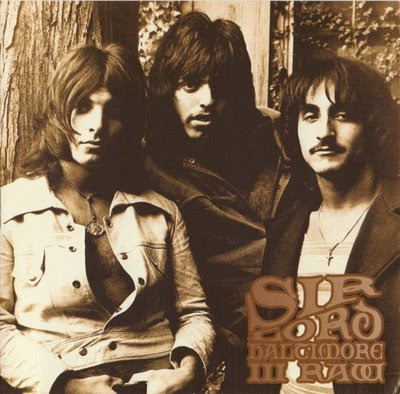 Style: hard Style: hard
Country: us
Audio: lossless (flactracks, cue, log, covers)
time: 28'03" Size: 222 mb
Fuzz Acid & Flowers:
An archetypal heavy metal group, who recorded in New York and New Jersey. Their album's are laced with guitar work but are rather monotonous.
One member had earlier played in Koala. ~ (Vernon Joynson / Steve B.)
wikipedia:
Some 30 years after the band's original breakup, lead vocalist/drummer John Garner and guitarist Louis Dambra reunited to record and self-distribute this album, with Garner producing. Original bass player Gary Justin did not participate, and the majority of the album's bass guitar work was performed by Tony Franklin, with guitarist Anthony Guido and bass player Sam Powell being credited as guest musicians.
Although the album's music was originally written for an aborted 1976 release, the lyrics were changed to present a Christian viewpoint not found on Sir Lord Baltimore's 1970s recordings. Sir Lord Baltimore III Raw was only available via mail order, and has not been released in brick-and-mortar or online stores. However, in February 2007, Garner indicated that he and Dambra were seeking a traditional distributor for the album.
...
Read more »
Views: 11040 |
Date: 24.04.2010
| Rating: 0.0
| Comments (0)
|

Style: hard
Country: uk
Audio: mp3 (256k)
Size: 76mb
Chapman and Whitney recorded the first Streetwalkers album after Family's farewell tour in 1973 with help from ex-Jeff Beck Group guitarist Bob Tench, members of King Crimson, Linda Lewis and another former Family member John Wetton. At this stage Streetwalkers were a loose knit collection of individuals not a group in the real sense at all. After Chapman's work with Family the album was a real anti-climax.
For the Downtown Flyers album Chapman and Whitney assembled a more stable line-up (B). John Plotel was previously with Casablanca. The album veered towards R&B and soul and Chapman's vocal style was much more mainstream than what he'd been doing with Family. Their most successful album commercially, though, was Red Card, which got to No 16 in the UK Album Charts. The group were popular on the Continent too, particularly in Germany. Their final 45 'A' side, Daddy Rolling Stone was a Derek Martin R&B track.
Internal friction ripped line-up (B) apart and line-up (C) recorded their remaining two albums to increasing public indifference. Inevitably, though Roger Chapman, a man of considerable talent, went on to make solo albums and he appeared in TV commercials. McBrain later worked for Pat Travers and was then in Iron Maiden. Tench and Feat worked for Van Morrison and Johnson and Dowle were in David Coverdale's Whitesnake.
This near-classic outing from the underground R&B/rock supergroup that was propelled Roger Chapman and Charlie Whitney from Family, and future Iron Maiden drummer NIcko McBain features 9 cuts including the rare bonus track, "Hole In Your Pocket."
...
Read more »
|
 Style: rio
Country: italy
Audio: mp3 (320k)
Size: 95mb
|
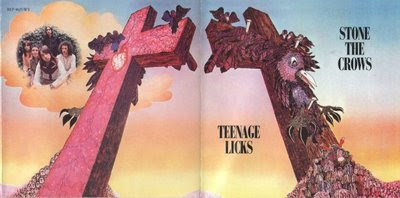
Style: heavy rhythm'n'blues
Country: uk
Audio: lossless (flac, cue, log, book covers)
Size: 254 mb
Issue: Repertoire REP 4625-WY (1996)
01. Big Jim Salter 4:38
02. Faces 4:41
03. Mr Wizard 5:31
04. Don't Think Twice 5:04
05. 'Keep On Rollin' 3:53
06. Ailen Mochree 0:25
07. One Five Eight 6:28
08. I May Be Right I May Be Wrong 5:05
09. Seven Lakes 3:04
COLIN ALLEN drms
MAGGIE BELL vcls
LES HARVEY gtr
RONNIE LEAHY keyb'ds
STEVE THOMPSON drms
...
Read more »
|
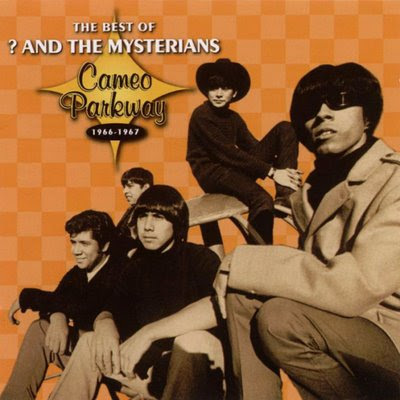
Style: garage, beat
Country: us
Audio: mp3 (256k)
Size: 121mb incl. covers
Fuzz Acid & Flowers:
Question Mark (Rudy Martinez) was born in 1945 and raised in Saginaw, Michigan. The band of Mexican/Americans were initially based in Corpus Christi, hence their inclusion here, although they were based for much of their career in Flint, Michigan, where they issued 96 Tears on their own label before it was picked up by Neil Bogart for release on Cameo. A relentless 'punk' two note organ sound ran throughout the record which quickly became a classic of its genre making No. 1 in the U.S. and No. 37 in the UK. They enjoyed some subsequent chart success but were never quite able to recapture the magic of 96 Tears or shake off the 'one hit wonder' tag, although it wasn't quite true. Robert Martinez and Larry Borjas were also original members of the band but they were in the U.S. Army when the first album was recorded.
Splitting in 1968, Martinez has made various attempted reformations. A 45 was issued in 1973 and new demos were recorded with Kim Fowley in 1978. They also played a reunion concert at the Dallas Arcadia in early 1985 and have continued to perform into the nineties. The Michigan band Inflight included ex-members of The Mysterians.
Mel Schaefer would later form Grand Funk Railroad.
The band have also appeared on a few compilations. Make You Mine was included on Pebbles, Vol. 8, Smokes on The Sound Of The Sixties; Do Something To Me on Michigan Brand Nuggets and Mindrocker, Vol. 11; 96 Tears on Mayhem & Psychosis Vol.3, Girl (You Captivate Me) on Songs We Taught The Fuzztones; Can't Get Enough Of You Baby on Michigan Nuggets (a '70s 2-LP set now reissued on CD), and Hang In on Everything You Ever Wanted To Know... CD. They were also included on the much earlier compilation The Stars Of Hitsville (Wyncote 9187).
(Vernon Joynson / Max Waller / Michal Owczarek / Stephane Rebeschini)
...
Read more »
|
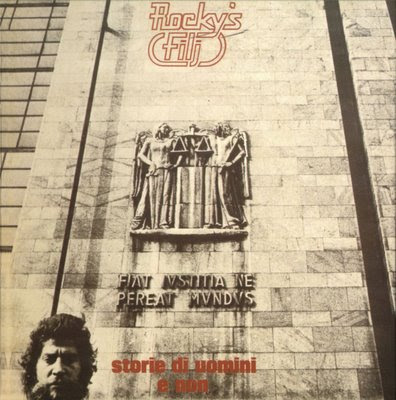
Style: prog, jazz
Country: italy
Audio: lossless (flac, cue, log, covers)
time: 36'40 Size: 227 mb
Issue: BMG 2003
Scented Gardens of Mind:
They played progressive jazz-rock in a similar vein to Duello Madre.
01. L'ultima Spiaggia 13:06
02. Il Soldato 6:17
03. E 3:57
04. Io Robot ! 7:41
05. Martino 5:40
Rocky Rossi - sax, flute
Roby Grablovits - guitar, flute
Luigi Ventura - bass, trombone
Rubino Calasante - drums, double bass
...
Read more »
|
 Style: zeuhl, prog Style: zeuhl, prog
Country: france
Audio: lossless (ape, cue, log, bokk covers)
Size: 224 mb
Issue: Musea FGBG 4137.AR (1996)
Scented Gardens Of The Mind:
Monier and Asseline were the creative force behind this jazz-rock outfit. They recorded serious instrumental music in the tradition of Soft Machine's Third, but were also inspired by jazz legends, such as John Coltrane and Miles Davis. They predated the refined instrumental style of Zao and several other French jazz-rock outfits.
|

Style: jazz rock
Country: uk
Audio: lossless (ape 768k)
Size: 341mb
misc.: this is compilation of earlier material (read tray)!
from Tapestry of Delights:
Nucleus first attracted attention by winning first prize at the Montreux International Festival in 1970 for their improvised and integrated music which was an amalgam of jazz and rock. They were originally formed in 1969 by trumpeter Ian Carr. He was joined by ex-Battered Ornaments guitarist Chris Spedding and Karl Jenkins and John Marshall (who both went on to Soft Machine) on the first three albums. Elastic Rock was their most successful, actually climbing to No 46 in the Album Charts. Their third album, Solar Plexus, was spacier than the two which preceded it and is particularly recommended. In 1972 Jenkins and Marshall both departed to join Soft Machine.
Belladonna was essentially an Ian Carr solo album, although he did enlist the services of guitarist Allan Holdsworth. Produced by Jon Hiseman (of Colosseum fame) it is Carr's most sought-after work for Vertigo. Of the later albums Snakes Hips Etcetera is well regarded. They eventually split up in the early eighties.
Nucleus are still considered to be one of Britain's top jazz-rock bands.
|
 Style: heavy psych Style: heavy psych
Country: us
Audio: lossless (ape, cue, log, scans)
time: 52'07" Size: 321 mb
Issue: 2001 Akarma
Fuzz Aci & Flwers:
Sonobeat pressed 100 copies of this Austin-based outfit's album which they tried to sell to United Artists. Musically they were very heavy with plenty of good guitar work but perhaps too much instrumentation. They won a good 'live' reputation but sadly broke up before Sonobeat concluded their negotiations with United Artists. Erik Johnson was a brilliant 16 year old guitarist who still has a considerable reputation as a guitarist in the 1980s with another Texan band Electromagnetics. His guitar work was also much in evidence on their second 45. The first was a pair of drum solos backed by studio electronics. The reissue of their album is obviously welcome because copies of the promotional-only release were very rare indeed.
|
 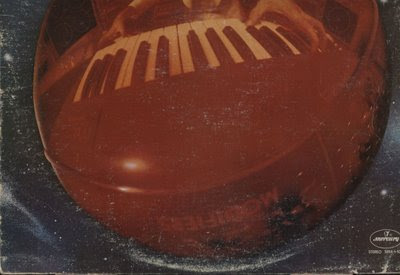
Style: rock
Country: us
Audio: lossless (ape 689 vinyl rip)
Size: 215mb
who's him don't know?
|
 Style: prog
Country: Norway
Audio: mp3 (320k)
Size: 92mb
Year: 2004 (records from '83-'84)
oe: very good band guys, although plays this materal in '80s.
Gibraltar:
According to this Norwegian bands history, Lucifer Was came together in 1970 and toiled around for many years without releasing any recorded material. Upon being discovered by the Record Heaven label, the band was convinced to record songs written back in the early 70's which were only played live at the time. Underground and Beyond is the culmination of those songs, a raw and aggressive collection of songs that owes to many of the great bands of that era, including Jethro Tull, Black Sabbath, Cream, Mountain, and early Scorpions.
Led by guitarist/vocalist Thore Engen, the band featured his pounding and savage riffs complemented by dual flutes. If one can imagine what Jethro Tull would have sounded like if Tony Iommi had chosen to stick around instead of going back to Black Sabbath in 1969, Lucifer Was would be a good example. Hearing the bludgeoning guitar licks dueling it out with manic flutes throughout the bands first CD is quite impressive, and a precursor to the surprise the group had in store for the follow-up, In Anadi's Bower. Here the band brought in a full-time singer named Jon Ruder (previously vocals were shared by Engen and flautist Dag Stenseng), whose vocals sound like a cross between Ian Anderson and Klaus Meine from the Scorpions. In addition, the band now has two Mellotron players, who add even more depth to the songs. One listen to the title track, with its waves of cascading Mellotrons that ultimately gives way to a classic, evil guitar riff from Engen, will send shivers up your spine. Another highlight is the four-part epic "Little Child", that is the most progressive and adventurous song the band has yet recorded. Listeners who love crunchy guitars, wild flute playing, and tons of Mellotron will find much to like with Lucifer Was. -- Peter Pardo
|
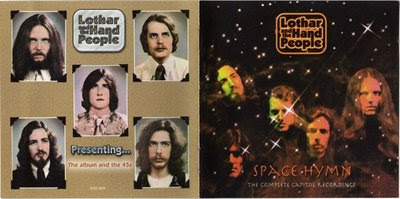 Style: psych Style: psych
Country: us
Audio: lossless (flac, cue, log, scans), mp3: (320k, scans, 218 mb)
Size: 541mb
Issue: 2003 Acadia, 2cd
oe: Amazing band!!! Don't you hear something from Lothar's Machines in Floyd's Money?
Fuzz Acid & Flowers:
This was one of the most interesting groups to emerge from America in this era. They moved to New York to record their two albums. Lothar was actually the name they gave to the theremin, which, together with two moog synthesisers, Ampex tape decks, keyboards and a linear controller characterised the group's sound.
Their debut album was reissued in the U.K. a few years ago and is consequently not difficult to obtain. On most tracks like This May Be Goodbye and That's Another Story, the theremin's influence is confined to short intros to fairly conventional two or three minute compositions. However, three exceptions to this are the weird Machines, the unusual Sex And Violence and final track It Comes On Anyhow - which is a foretaste of some of the psychedelic craziness which appeared on their follow-up album.
On Space Hymn, the theremin and other electronic gadgetry is generally used to better effect. The album is composed of a mixture of weird material and more commercial numbers, such as Yes! I Love You, Heatwave, and Say I Do (which were issued as singles). The lyrics are often full of the usual hippie cliches. For example, What Grows On Your Head? is, as one might expect, romanticising about the freedom and virtues of long hair, while Midnight Ranger sounds like the story of a ranger who has had one trip too many! Some of the other material is particularly weird, notably keyboard instrumental Wedding Night For Those Who Love, Sdrawkcab and Today Is Only Yesterday's Tomorrow. The title track, however, reaches new heights of craziness when the vocalist sets about hypnotising his audience! Certainly an interesting album, this is recommended. Apart from Heatwave, all the material was written by the band and you won't hear anything more unusual from this era than that title track.
Kim King went on to become a producer and sound engineer, notably working with Holy Moses and Colin Winski. ~ (Vernon Joynson/Stephane Rebeschini)
...
Read more »
|
 Style: prog Style: prog
Country: germany
Audio: lossless (flac)
COSMIC DREAMS AT PLAY:
A progressive jazz-rock outfit. Dieter Dierks guested on mellotron. VCU ("we see you") was produced by Peter Hauke in the Dierks studio 1973. This album represented one of his least successful productions. Lily's music was quite ordinary and bands like Ardo Dombec made, in my opinion, far better efforts to combine jazz and progressive rock (with the weight on rock). Certainly other collectors regard Lily with more enthusiasm than me, though! The album had a notorious sleeve with the members pictured with lots of make-up.
...
Read more »
|
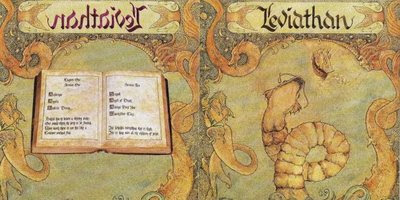 Style: heavy prog Style: heavy prog
Country: us
Audio: lossless (ape,cue, log, scans)
Size: 243 mb
Gibraltar:
As far as homegrown prog bands went (with a couple exceptions), 1970's America was the home of the brave but doomed. Leviathan was one act that actually managed to get one proper album release before disappearing, probably to secure to themselves and their posterity the blessings of not starving to death. Not as derivative of big-name British acts as most of their contemporaries, Leviathan's release (LP Mach Records AMA 12501, CD Akarma AK 110) instead demonstrates how much more blurred the line between heavy metal and progressive rock had already become in the Colonies than in the Old Blighty.
The opening track "Arabesqúe" is rife with crunchy guitar riffs, stomping drums and bass, and bluesy vocal melodies delivered with hard rock's throaty harshness and occasional caught-meself-in-the-zipper yells. On the other hand, these are interspersed with a more delicate and harmonically complex sections with acoustic guitar, quick organ cadenzas and especially swirling Mellotron swells. The effect resembles some of Kansas' early works, though the writing is less adventurous and the playing less dynamic. The rest of the album pendulates between these two elements, searching for a right balance with variable success.
...
Read more »
|
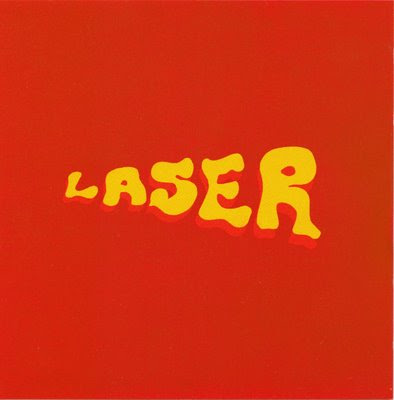 Style: prog Style: prog
Country: italy
Audio: lossless (flac 779k)
Size: 190mb
ItalianProg:
A band from Rome, founded at the end of the 60's with the name Il Laser by Elvezio Sbardella, who was in the early days their singer and later their lyricist and producer, they made their debut single single in 1972 for a small label from Emilia. The first line-up included a keyboardist named Gino.
The album Vita sul pianeta, released by the Car Juke Box label with no promotion, is very short, with eight tracks in hard prog style, guitar and keyboards to the fore. A good album, though the production is not great, sought after by collectors for its rarity.
The group didn't have a role singer, and the vocal parts are the weakest point of the album, the naive lyrics were about the evolution of mankind on earth.
Laser broke up in 1973, right after the LP release, due to the fact that keyboardist D'Agostino had its military duties and the others had work commitments.
Riccardo Paolucci was the only one who's kept playing in the clubs of Rome.
...
Read more »
|
 Style: psych Style: psych
Country: venezuela
Audio: lossless (ape 777k)
Size: 199mb
Issue: 2004
Dreams Fantasies & Nightmares:
A stunning album and, prior to its reissue, one of the rarest and most sought-after in the World. Original pressings appeared on translucent coloured vinyl. It was made by American Stephen Scott and a group of Venezuelan musicians, whilst hippie musician Scott was on his travels through South America.
The opening cut People, also featured on the Love, Peace And Poetry: Latin American Psychedelic Music compilation, sets the tone for much of what follows with some superb fuzz guitar work, which is also most evident on the other stand out cut And Everywhere I See The Shadow Of That Life. Other highlights include To Walk On Water, a laid back number with some lovely woodwind and, in a similar style, The Time Of Hope Is Gone with its ethereal vocals. Heaven's Coming Up and W.C. Blues are more bluesy. The finale is interesting too, opening with sounds reminiscent of The United States Of America album. The track ends in a sorta freeform mayhem. All lyrics on this album are sung in English. Recommended.
01. "People" 2:42
02. "I Cant See Straight" 3:20
03. "To Walk On Water" 3:27
04. "Heavens Comming Up" 4:23
05. "And Everywhere I See Shadow Of That Life" 3:25
06. "Searching For Meeting Place" 2:49
07. "Put That In Your Pipe And Smoke It" 3:12
08. "The Time Of Hope Is Gone" 2:35
09. "Blues" 2:54
10. "I Am Gonna Be" 5:49
ADIT COSTA gtr, organ, vcls
STEPHEN SCOTT hrmnca, bs, vcls
JAIME SEIJAS gtr, organ, vcls
MARIO SEIJAS drms, perc
|
 Style: neo psych
Country: uk
Audio: lossless (flac 978k)
Size: 355mb
Adrift in the Ether:
Kula Shaker are a sixties influenced psych / R&B act with a bluesy edge. The band were formed from the remains of North London mod act The Kays in October 1995, although Crispian Mills (son of actress Hayley Mills) and Alonza Bevin had first met in 1988 at Richmond college and played together in a number of bands - The Lovely Lads, The New Originals and The Objects.
The band's music is variable in quality and sometimes derivative and lacking in originality although at its best the music is excellent. The debut single, in particular, was rather laboured and unsubtle but matters improved greatly with the second, Tattva. The band show themselves to be skilled songwriters and talented musicians, particularly Crispian and Jay Darlington. The sound is strongly reminiscent of Beatles-style sixties pop psych with soulful organ playing and skilfully blended with eastern elements and instruments. Other tracks retain the combination of mod and eastern elements and are all pretty good. The cover of Tim Hardin's Red Balloon is particularly noteworthy. Tattva was deservedly a hit. (Chris Williams)
|
 Style: psych, prog
Country: Norway
Audio: lossless (flac 992k)
Size: 450mb
*** Junipher Greene - Magical Garden, from "Friendship", their debut album, released in 1971. Junipher Greene were one of Norway's best progressive rock outfits, formed in the early seventies. Information about them is almost nigh impossible to find, but it would appear that the band was formed by guitarist/vocalist Bent Aaserud, drummer/vocalist Geir Boehren, keyboard p layer Helge Groesli and bassist Oeyvind Villibo. Their jazz influenced sound is probably best compared to that of UK outfit Tonton Macoute, with some l ovely flute thrown in for good measure. This debut offering is apparently their only album currently available on CD, which is a pity, because their follow-up, "Communication", which came out in 1973, was excellent, but difficult to track down outside of their home country. It would appear that they split in 1975, with the obligatory "Best of " album being released that year, and then they reformed in 1980, releasing a further two albums. ( Dinosaurdays )
*** JUNIPHER GREENE was a Norwegian progressive rock band who were formed in Oslo in 1967. The initial line-up included Bent Aserud on guitars, keyboards, flute and vocals, Geir Bohren on lead vocals, drums and sax, Helge Groslie on keyboards, Freddie Dahl on guitar and vocals and Oyvind Vilbo on bass. They released their ambitious debut album in 1971 called "Friendship". It stands as one of Norway's earliest progressive album and the country's first double LP.They were one of Norway's best bands together with RUPHUS and HOST, although they only released one album in 1973 "Communication" (also very good) before splitting in the mid 70s. Two compilation albums, "Best Of" (1975) and "Rewind" (1981), which also featured a number of unreleased tracks recorded between 1969 and 1980, were issued. Helge Groslie left the band to join TITANIC in 1972, Aserud and Bohren kept the JUNIPHER GREENE name for various incarnations during the 80s, although these were very different to the original group. They've since built a reputation as the creators of Norwegian movie soundtracks. ( ProgArchives )
|
 Style: prog
Country: italy
Audio: lossless (ape, cue, scans)
Size: 274 mb
Issue: 2002 Remaster 24bit
ProgArchives:
A lost group from the progressive rock movement of Italy in the 1970's that has finally seen the light of day with the recent reissue of their only album, 1972's self titled album. The group included Robert Deller (keyboards, vocals), Massimo Pravato (guitar, bass), and Umberto Maschio (drums). They left Italy after forming for Germany where they took up residency in Munich where they recorded their album. Massimo Pravato was killed in a car accident in 1973. The album was released in 1974 only in Germany and until last years reissue of the album on CD it was forgotten and went largely unnoticed.
Their self titled album is good example of a solid hard prog with nice keyboard work Noteable for in an era that had many 'short' albums the album was lengthy clocking in at over 46 minutes.
The group is worth a listen. Would recommend only to those who have money to burn and are looking for really hidden albums in the Rock Progressivo Italiano genre. That said.. having owned the reissue for about six months.. it still get regular rotation. Good group and wouild have liked to have seen what they might have followed this up with.
01. "Merry Go ROund" 4:24
02. "Crumbs of a Day" 4:43
03. "Sunday Best" 5:59
04. "Seminar" 3:18
05. "Childrens Game" 5:03
06. "Knock" 4:52
07. "Clapping and Smiling" 9:06
08. "Dew-Drops" 7:06
09. "Buzzard" 1:48
Robert Deller / keyboards, vocals
Massimo Pravato / guitar, bass
Umberto Maschio / drums
oe: very 1stclass italian prog, sounds like early Graaf or Gentle
|
 Style: hard
Country: uk
Audio: lossless (flac 966k)
Size: 427mb
oe: proud dusty hard at shelf, okay okay this house is down
|
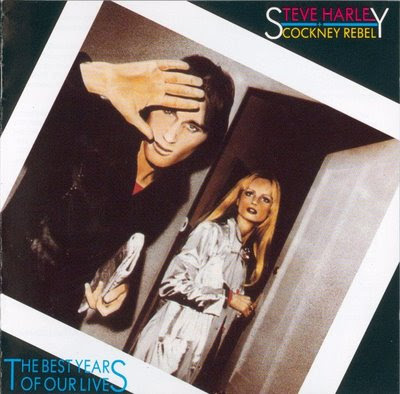 Style: glam
Country: uk
Audio: lossless (ape 784k)
Size: 308mb
Starling review:
Now then, starting from here, you don't really need these records unless Mr Steve Harley, regardless of the actual music he and his croonies make, strikes you as an intelligent, astute, sagacious and utterly penetrative bonmot of a person. (You can have your thesaurus back now.) Oh, he actually does strike me as one, which is why in the end I ended up liking this record about as much as Psychomodo even if the sonic differentiation is drastic. But one man's genius is another man's Jerry Springer, so think for yourself cuz I won't be there with you. (Cool fuzz tone, abrupt stop).
After Psychomodo, Steve Harley abruptly dumped the original Cockney Rebel, cruelly ending the two-year-long dream of the great democratic musical revolution. Out of the original members, only drummer Stuart Elliott has survived the transition, and out of all the new members, the only name I recognize is new guitarist Jim Cregan (former Family member for a very brief time, and later a pedestrian associate for Rod Stewart in his rote early Eighties period). And this is now "Steve Harley & Cockney Rebel" - meaning that music as such takes a step back and Harley's personal decadent/satiric fantasies take a step forward. Well, at least he's honest about it.
At first, the difference will seem unbearable. Gone are the ultra-cool violin riffs and the lengthy complex instrumental passages and, in fact, a huge part of the musical audacity and diversity of old. The first few times I heard this, it was all generic four-four beats and lots and lots and lots of boring lyrics to me. Then, fortunately, the feeling passed and I saw the album for what it was: Harley's half-sung, half-spoken, half-meaningful, half-absurdist oh-so-70s confession. An album full of terrific lyrical imagery and theatrical passion - and, actually, not that devoid of melodies. Well, I guess it's about as melodic as your average Springsteen album, actually, your average singer-songwriter album from the mid-Seventies, and in those cases when the singer-songwriter gets by on behalf of his personal charisma, it's about the best you can expect from that period. And you wanted the best, you got it.
There actually was one UK hit here, and that's 'Make Me Smile (Come Up And See Me)', an excellent mid-tempo pop-rocker with a glammy multi-vocal chorus and great use of the stop-and-start structure (as well as Beatlesque ooh-la-la-las all over the place). It's at the same time typical and atypical of the album. Typical, because it features the same type of enigmatic lyrics - on the surface, it's something like a misogynistic putdown, but what do you do with lines like 'How can you ignore my faith in everything/When I know what Faith is and what it's worth'? Atypical, because it's shorter, catchier and more concise than anything else on here, certainly chart-oriented at heart, but smart enough so as not to linger in the charts for too long.
My favourite tracks are the two side-closers, though. 'Panorama' is fast and lively, with a funny guitar tone, upbeat brass lines punctuating the melody and a totally kick-ass chorus ('I felt forty-five I was barely alive, I saw a Human Tribe and I was terrified'). Who cares if you can't really decipher the goofy lyrics? That's Steve Harley for you, Bobby Zimmerman's trusted disciple. And it's glam, baby, glam pop in all of its glory, highlighted by his female backuppers and saxophones and a giddy atmosphere of know-nothing-care-for-nothing. And then there's the title track, even more Dylan-like because it's slower and, as far as the overall impression goes, more introspective. For all of its five and a half minutes, you are openly caressed by Harley's cockneyified vocals, vocals which nevertheless seem to mock the very idea of a nostalgic confessional song. 'You think it's tragic when that moment arrives - oh but it's magic, it's the best years of our lives', he sings, and it would all be very well if you could actually understand what particular moment he's singing about. But whatever it is, it must mean a lot to the man. Or pretends to mean a lot.
The sense of the proceedings never gets any clearer, it only gets worse. Tracks like 'Back To The Farm' are openly paranoid, and it's a blessing - you don't actually have to wreck your brain over any hidden messages in that one. But indeed, Steve Harley is one of the best "impersonators of paranoia" of the epoch, and his ravings on that track are first rate, not to mention a well-crafted synthesizer solo from Duncan Mackay at the end. 'Mr Raffles' shuffles along lazily, yet with oodles and oodles of stylishness (and I particularly like that creeping little bit of Spanish guitar that enters right after the 'what a time we had down in Barcelona' line, ever noticed that?). '49th Parallel' experiments with funk, not particularly successfully, but ain't no crushing fiasco either. And 'Mad Mad Moonlight' desperately tries to pump in some rock'n'roll energy, but instead only manages to start the album off on a particularly puzzling note.
Playing this backto back with Psychomodo would actually help you to understand why they're rated equally - Psychomodo is much more daring and experimental, yet it seems like on this 1975 album Steve is much more firmly standing on his own two feet, so to speak. The songs are long, but never really overlong, and every one of them has a point, even if most of the points are undecipherable. Here is a man who has intentionally toned down his ambitions and started making records that may not be as original in quality, but are far more adequate in content. And, of course, as usual, the lyrics and the moods which accompany them may all be a huge put-on, but I find no problem in accepting them as a conscious put-on. And, after all, it's not the literal interpretation that matters, but the overall message - that of a crazy, crazy, crazy social life, life as a madhouse rife with possibilities and combinations. Actually, just look over the lyrics sheet with one brief glance. It's all about parties, madness, and murder. Well, how can one exist without the other? That's 1975 for you. Heck, that's humanity for you.
|
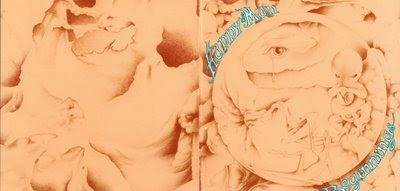 Style: prog
Country: us
Audio: lossless (ape)
Size: 316mb
Issue: Cuneiform
Year: 1990 (recorded '74-'75)
Gibraltar:
HTM produced some of the most stirring, complex, melodic, and MUSICAL works I have ever heard, and although they are rather rare, they are certainly very accessible and you should be able to find their stuff on domestic cd without having to plop down $35+ for it. Throughout their existance as a functioning band (from 1974-1978) they recorded three marvelous LP's. The following musicians appear on each one of these: 1. Frank Wyatt - piano, el. piano, organ, flute, sax 2. Stanley Whitaker - guitars 3. Rick Kennell - bass 4. Kit Watkins - synths, piano, el. piano, organ, flute. Each album had a different drummer (seems the money-grubbing scum at Arista scared them away with their threats of having no commercial appeal as a band, or something like that....). The discography below shows the albums and who played drums on them: 1. Happy The Man - drums: Mike Beck 2. Crafty Hands - drums: Ron Riddle 3. Third: Better Late - drums: Coco Roussel. The first one is arguably the best of the three, although not by much as they are all truly spectacular. It was produced by Ken Scott, of David Bowie and Supertramp fame. This album defines the band's sound very well, one that endured throughout their career. For those of you who have never heard the HTM sound are missing something very special. The band claims to be influenced by Genesis, Yes, and Gentle Giant although they really do not sound anything like any of those bands. They were a band so far ahead of their time that, to this day, they still sound totally revolutionary. The compositions tend to be rather complex and challenging, but they cleverly avoid falling into that dissonant trap that so many bands fall in to when they try to write something complex (e.g. the mid-section of Yes' "Ritual"). HTM maintains a melodic approach to everything they write. On this album you will find: (I quote a suitably impressed music critic) "dazzling artistic vision, instrumental virtuosity, and imagination," "fresh, exhilarating and impossible to categorize (this means please do not try to put a label on this band like "progressive" - it will make a lot of us very mad)," "witness HTM's masterful use of dynamics, tonal colors, and counterpoint; their ability to execute finger-breaking time signatures with deft ease; the lattice-like melodies and ingenious thematic variations that surge and recede with unusual grace and power; and the fact that no matter how complex or demanding their music became, the band always sounded uncluttered and in total control." There. Couldn't have said it better myself. Each member of the band is exceptionally gifted...there is no one single dominant member. The writing is carried out by Watkins, Wyatt, and Whitaker. Watkins tends to write pieces with a lot of symphonic flourish, and you can bet your life there will be some awesome lead synth playing (usually done on a MiniMoog). I once thought Keith Emerson, Rick Wakeman, and Tony Banks were the best around....then I heard HTM. Kit Watkins can bury those guys with his right hand alone. You have to hear him to believe it. His Minimoog settings have an unsurpassed clarity to them, and he knows exactly how to use the pitch-bending feature of the instrument at the right time. I have an old article from Keyboard magazine, around 1982, that shows the settings he used on the MiniMoog to obtain this remarkable, unique sound. Words cannot describe his technical prowess, honest.... Whitaker writes more upbeat, punchy songs, like "Stumpy Meets the Firecracker in Stencil Forest" from the first LP. Wyatt tends to write the songs with the lyrics, which were sung by Stan Whitaker. Here's what is available on CD to date: 1. Retrospective - a compilation of most of first and second lp, with some stuff from 3rd. Great place to start. 2. HTM 3rd: Better Late 3. Beginnings - features material recorded live in 2-track studio in 1974-75. Features a singer called Cliff Fortney who left the band before being signed to Arista. Very rough recording, but some really great songs. Some are not up to their usual standard of excel- lence, however. Recommended only for die-hards. Do not start with this one. 4. HTM and Crafty Hands were released on Japanese CD, but only 500 copies of each....I have never seen one myself, but I understand they sell for nearly $250 each at shows ...
|
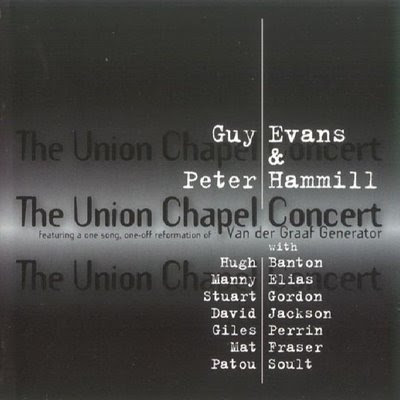 Style: prog
Country: uk
Audio: lossless (flac 822k)
Size: 731mb
Issue: FIE 9115
|
 Style: prog
Country: uk
Audio: lossless (wavpack 739k)
Size: 256k
|
 Style: prog, rio Style: prog, rio
Country: italy
Audio: mp3 (256k, scans)
Size: 78mb
ItalianProg:
This largely unknown group from northern Italy has only released an album on the Ultima Spiaggia label in 1977, but this can be a nice surprise to anyone into the Canterbury/Rock In Opposition sound, that only had good releases in Italy by Stormy Six and Picchio Dal Pozzo.
Their ten-track concept album Gran disordine sotto il cielo has strong similarities with the english group Henry Cow in the use of the female voice of Françoise Godard and such instruments as bassoon, oboe and violin, but even contains some lighter moments that make it a bit disjointed like the Ultima Spiaggia LP on the same label.
An interesting album indeed, this deserves to be heard.
01. "Per" 2:39
02. "Alice Nel Pozzo, Alice E Le Regine" 9:38
03. "Alice Oltre Lo Specchio" 2:31
04. "Piccole Voci" 6:26
05. "Ombre Rosse" 3:51
06. "Perl Il Bene Della Patria" 5:14
07. "E Una Notte" 5:42
08. "Arrivano I Barbari" 4:08
09. "Tarantola" 2:37
Umberto Calice / vocals, percussion
Françoise Godard / vocals, guitar
Maurizio Martelli / guitars
Alberto Mompellio / keyboards, violin, vocals
Dino Mariani / bassoon
Mario Arcari / oboe
Raoul Scacchi / bass, guitar
Mario Ultre / drums
|
 Style: prog
Country: uk
Audio: lossless (flac 773k)
Size: 278mb
...
Read more »
|
 Style: rock
Country: uk
Audio: lossless (ape 884k)
Size: 278mb
|
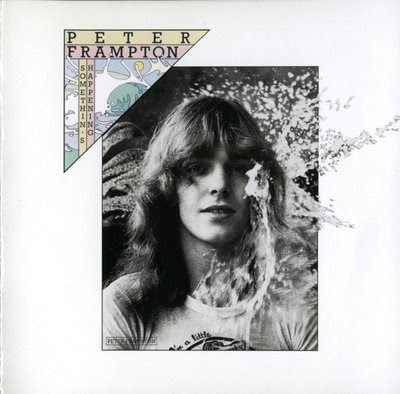 Style: rock
Country: uk
Audio: lossless (ape 971k)
Size: 284mb
|
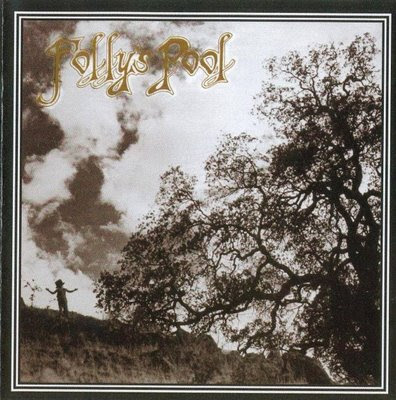
Style: folk, prog
Country: us
Audio: lossless (flac)
Size: 263mb
Issue: Radioactive RRCD 155 (2005)
|

genre: prog
country: nethrlands
quality: lossless (ape, cue, log, scans)
time: 42'32" size: 277 mb
misc.: 2001
Side one
"Focus III" (Thijs van Leer) – 3:52
"Answers? Questions! Questions? Answers!" (Jan Akkerman, Bert Ruiter) – 11:29
"Focus II" (van Leer) – 4:36
Side two
"Eruption (Excerpt):" (Tom Barlage, van Leer) – 8:28
"Orfeus"
"Answer"
"Orfeus"
"Answer"
"Pupilla"
"Tommy"
"Pupilla"
"Hocus Pocus" (Akkerman, van Leer) – 8:30
"Sylvia" (van Leer) – 2:47
"Hocus Pocus (Reprise)" (Akkerman, van Leer) – 2:46
Thijs van Leer – keyboards, flute, vocals
Jan Akkerman – guitar
Bert Ruiter – bass guitar
Pierre van der Linden – drums
also:
|
 Style: blues
Country: uk
Audio: lossless (flac 1022k vinyl rip)
Size: 505mb
|
 Style: beat Style: beat
Country: us
Audio: mp3 (256k, scans)
time: 1:11'58" dize: 131 mb
Issue: 2003
Fuss Acid & Flowers:
Formed in the mid-late 1950s in Tacoma, Washington State. Most of their original albums are now sought-after by collectors. Ormsby and Morrill were real pioneers, forming Etiquette Productions and the label in the early sixties - the first band to do so by a long way. They also recorded a 45, All My Nights, All My Days/Better For Both Of Us (Jerden 789), under the pseudonym of the Breakers in 1966. By 1966 only Ormsby and Morrill remained from the original line-up, Dangel having left to join Floating Bridge. For Outburst they were joined by Neil Anderson (lead gtr), Ron Gardner (sax, vcls) and Dave Roland (drms) (ex-Regents). Earlier in 1965 they featured on the LP Merry Christmas (featuring The Sonics, Wailers and Galaxies) (Etiquette ETALB 025) 1965 playing four tracks:- She's Comin' Home, Maybe This Year, Christmas Spirit and The Christmas Song. This was reissued a few years back, but originals are very rare and collectable. Later still Anderson was replaced by Danny Weaver (lead gtr), with Anderson going on to an act called Ice in early '68 (Neil Anderson gtr, Bob Bennet (ex-Sonics) drms, Clyde Heaton (ex Calliope) keyb'ds plus one unknown), and then Adam Wind. Upon their demise in 1969, Gardner formed Sweet Rolle with Weaver, Roland and Dave Immer. Then in 1972 Gardner formed the Ron Gardner Group (Ron Gardner - vcls, sax, keyb'ds; Denny Weaver - gtr; Dave Shogren - bs (ex Doobies); Dave Immer - keyb'ds; and Doug Booth - drms), who issued a great album on MCA. This was not quite the end of the episode, for Morrill, Dangel, Ormsby, Burk and Gardner reformed in 1979 to cut a further album. Roland also had a spell with The City Zu amongst others. The Wailers were one of Washington's most famous sixties bands and also gigged regularly in San Francisco in 1967. Of their several albums, Tall Cool One was the most successful commercially. It made No. 127 in the U.S. Album Charts back in 1964. Both the Out Of Our Tree and Outburst LPs from 1966 feature some fine garage sounds, though the band's repertoire was always varied and so difficult to label.
|

Really Super Psychedelic in african-gypsy style!
|
 Style: kraut prog Style: kraut prog
Country: germany
Audio: lossless (flac 829k)
Size: 287mb
Issue: Brain LC-01846 (2004)
COSMIC DREAMS AT PLAY:
Electric Sandwich's only album had a most outstanding opening track, the 8 minute instrumental "China", with a repetitive, percussive rhythm and fuzzy wah-wah guitar. Other tracks had an impressive electronically treated sax style reminiscent of Ian Underwood. The guitar work was fine, but the creaky vocals less impressive! Fortunately, large parts of the album were instrumental. "Devil's Dream" and "Nervous Creek" had a slight blues feel and loud rock arrangements. Side two mellowed a bit, with softer Jazz and slow boogie blues styles. Again this was a Dieter Dierks production, and one you should check out! It was released on the green Brain label in 1972 in a funny fold-out cover, picturing a fancy, electric sandwich! The quintet was probably from Bonn.
|
 Style: psych, rock
Country: us
Audio: mp3 (256k)
Size: 111mb
Album Description:
The Electric Prunes have always been a California band. Screaming out of the late 60's their pulsating music captured the hope and angst of a drifting generation. Well the drifting is back, and so are the Electric Prunes! Perhaps to the rescue! From the minute you "come flying", as the lyric suggests on the introduction, this seminal band delivers the goods. 13 surprising new flame-laden psych tracks melt your speakers with "Prune" trademark fuzz, twang, tremolo and mayhem. For those that thought the 60's were over.....hang onto your wah wah! Not some rehash or recreation of a time past, this is the real thing played as only the "real people" can play it. The "California" of the 60's is found at the end of some gloriously simple songs, memorable riffs and a sense that each track is actually taking place in some cosmic vortex of a past time. This record sounds just like 1967! Legendary Moby Grapeist Peter Lewis joins the band for some vintage 60's guitar work on "Rickenbacker 12 String", an ode to that very special "California made" 12 string guitar. California mixes some cool Rudi Protrudi abstract guitar artwork on the cover, with a range of images from a touring musician losing his pants in France (49 SONGS), to a guy that can't leave his flipped out girlfriend because he just tattooed her name on his bum (Rosy made me crazy). Face it, all pertinent topics. "California" is Escapist Surfing, the Hollywood Movie Business, Famous Friends, even an ass kicking Tidal Wave. This CD leaves no doubt in what is left of anyone's mind that the Electric Prunes were, and are, anchors for a drifting generation. Man the lifeboats!
|
 Style: prog
Country: us
Audio: lossless (wavpack 947k, Cue, Log, Scans , Embedded)
Size: 420mb
Gibralrar:
Echolyn is a five piece from Pennsylvania, whose sound is direct, tightly arranged and colorful. The lyrics take a prominent role, delivered with feeling and plenty of raw emotional content. Their sound is layered and complex, but not overly busy. The "Mellotron" sound is used generously, but the overall sound has more variety than usual and tends to be a little more experimental. Of their first album: Quite impressive is the album opener "Fountainhead," a very experimental collage type piece that leads into the first full length track "The Great Men," a thought provoking track about idealism and human nature. The balance of the album is equally exceptional. A second album has just been released Suffocating The Bloom, it's even more powerful than the first, with the band showing more musical maturity all around. Echolyn represents the lighter side of progressive music: the Yes/Marillion influence, catchy tunes, repetitive choruses, mainstream style ... the list goes on. But I cannot deny that they are good musicians, the writing is solid, and that I like them. They take the style of Kansas (group voicings, power chords, overlaid keyboards) and make progressive rock out of it. Throw in some counterpoint, a busy rhythm section, and thoughtful, introspective lyrics, and you've got Echolyn. The band strides the fine line between neo-prog and progressive and somehow manages to capture the best of both worlds. While completely accessible to the average listener, *and* to anyone who isn't into progressive rock, they have enough going on to keep the attention of people like myself who need a little dissonance and/or complexity to stay awake. Prediction time: Echolyn is going to be big. Real big. They have all the tools to blow this brand of lite-progressive into the mainstream. But are they representative of the strongest aspects of the genre? Over time, they will achieve popularity, but only expose a small corner of what progressive music is and can be. Any attention brought to the genre will be lost on bands like Xaal, Deux ex Machina, and others that equal if not eclipse Echolyn in potential. Suffocating The Bloom contains a lot of variation, but it is well contructed, like a really good concept album. I don't particularly like the singer's tone of voice, but it's OK, and he more than makes up for it with his convincing delivery of some good lyrics. There are plently great sections of music in this CD. This contains my favourite drummer of these 5: his drums have been tuned to make maximum excitement in fills, and he uses his china cymbal really well. One thing I don't like, especially on first listen, is the start of the album, in which the guitar player sounds very amateurish, although he later proves he's not. Mind you, it's amateurish in the same way that I think Steve Howe sounds amateurish in some bits of Asia! Overall, a very good album, although I can't listen to it lots of times in a row. Compared to the previous albums, as the world is a much better recording. With as the world, they build upon the sound they established on their earlier albums where the music is characterized by a complex interplay of each instrument, then overlayed with thick vocal harmonies. Their composition does not follow the classic jazz format where one instrument breaks off for a solo before returning to the theme, but rather they adhere to the philosophy that the whole is greater than the sum of the parts. Each instrument does something different and plays an integral role in producing the finished sound. They have strong progressive tendencies as evidenced by the rapid time signature changes, which bring to mind parts of Gentle Giant and Happy the Man, however I would not classify them as neo-progressive since they sound nothing like Marillion, IQ, or that genre. They have jazz overtones, a tiny bit of folk, and some classical moments. The vocal harmonies, which are one of the strengths of Echolyn, remind me of Steely Dan, especially in the types of chords used. Their lyrics are thoughtful, but not really deep. However, they're not cryptic either, which I find a plus. Overall, as the world is a very mature effort containing a good balance of songs: some with pretty melodies, some with discord, and most with comlex and shifting rythms. As such it may appeal to a variety of listeners, but by the same token there will probably be parts that each listener may not particularly like. My experience is that the album gets better with every listen as I hear new things and gain greater appreciation for where the music is headed. Because of this Echolyn has become one of my favorite bands. Unfortunately, the latest news is that they've broken up. It looks like another talented band falls by the wayside. -- Doug Hobbs These five American musicians present the usual lineup with vocals, guitars, keyboards, bass and drums. Flutes and strings are used in some of the acoustic parts. The compositions on Suffocating the Bloom and As the World are based on introspective lyrics but never neglect the instrumental aspect of the music. The clever interaction between the voices and the other instruments introduces elements of complexity to this otherwise very accessible music. They actually pull-off an excellent fusion of the best elements from numerous influences. -- Paul Charbonneau
|
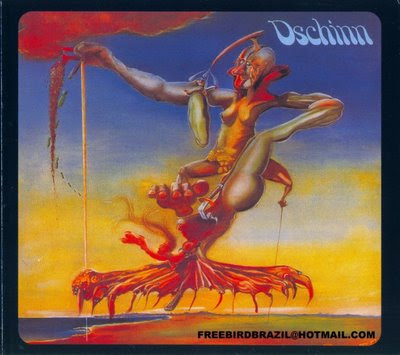 style: kraut prog
country: germany
audio: lossless (flac, cue, log, scans) & mp3 (320k)
Size: 537 or 170 mb
misc.: 1977 Second Battle
COSMIC DREAMS AT PLAY :
The Dschinn record had a very convincing Dali plagiate painting on its sleeve, courtesy of one Klaus Holitzka. I can reveal that the music isn't as surrealistic as the sleeve would imply, it's a quite conventional type of hard rock. This is not meant as a criticism, though - it is a great album! The lack of originality is nonchalantly replaced by sheer power, both in the music and the vocals. They wrote all nine tracks together, except for the cover version of "For Your Love". It was recorded at Tonstudio Mitte, Bremen and produced by Rolf Jenzen, a character unknown to me. Sadly this one album is their sole legacy, apart from a track on the 1973 sampler Mama Rock & The Sons Of Rock'n'Roll (Bacillus BLS 5526; 2nd edition BAC 2025), named "Rock'n'Roll Dschinny". Not even a single was lifted from their eponymous album and the group disappeared without trace.
01. "Freedom" 4:48
02. "Fortune" 4:56
03. "I'm In Love" 4:46
04. "Train" 4:56
05. "Let's Go Together" 3:11
06. "Smile Of The Devil" 4:23
07. "I Wanna Know" 3:34
08. "Are You Ready" 4:03
bonus
09. "For Your Love" 4:12
10. "Rock'N'Roll Dschinny" 3:09
11. "Hear What I Say" 2:54
12. "Come On Come Back" 2:32
13. "Let's Go Together" 2:19
14. "Never, Never" 2:53
15. "Take Me Back" 3:27
16. "Hurry Up" 3:39
17. "Woman" 2:26
18. "Road Tune" 2:21
19. "Can't You See" 3:11
20. "Give Me A Little Love" 2:58
21. "Day After Day" 2:44
Bernd Capito / lead guitar, vocals
Peter Lorenz / rhythm guitar, vocals
Uli Mund / drums, percussion
Athanasios Paltoglou / drums, percussion
Silvio Verfurth / bass, vocals
|
+-++Mark+III+-+The+Final+Concerts+-+Front.jpg) Style: hard
Country: uk
Audio: lossless (ape 931k)
Size: 790mb
misc.: (recorded 1975)
|
 Style: country
Country: us
Audio: lossless (flac 776k)
Size: 212mb
|

Style: neo prog
Country: us
Audio: lossless (ape, cue, log, scans)
time: 1:05'04" Size: 439mb
from Gibraltar:
This band has developed a following in the DC area, and this is their first CD release. This is pretty much in the neo-prog vein, with fairly strong similarities to IQ, musically, with vocals in a more "American" style. The little I heard of Kingdom of Ends came across as straight forward radio rock. Very weak in terms of progressiveness, almost laughable in fact. This is one of those bands that gives neo-prog a bad name. -- Mike Borella The 55 minute Kingdom of Ends consists of two previously released cassette EPs: Cathedral (1991) and Kingdom of Ends (1992). There are four songs in the five minute range and four in the 7-10 minute range. The players on this album are: Gary Sisto, guitar; Ted Thompson, lead and backing vocals; Todd Braverman, keyboards; Mike Hounshell; bass and backing vocals; and Mark Copney, drums and backing vocals. For the most part, Cathedral fall into the Genesis/ IQ/ Marillion neo-prog camp but they do it very well. There are also evident Pink Floyd influences, mainly in the guitar. This is an album I would listen to as often as IQ's The Wake or Twelfth Night's Fact and Fiction. Sisto reminds me mostly of David Gilmour and a souped up Steve Hackett but on "Beneath the Wheel," he manages to sound a bit like Roy Albrighton of Nektar! Copney and Hounshell are better than the average neo-prog rhythm section. Even Thompson's voice, although nothing spectacular, is better than the average neo-prog singer, usually a major flaw in bands of this genre. Cathedral have penned appealing compositions with memorable melodies. The longer tunes, such as the eight minute "Psychotic" or the ten minute "Pinocchio" have several sections of tension and release that give the songs direction and purpose. They are doing more than going through the motions. Even the shorter tunes, like "Seldom Seen" and "Nothing About Nothing" manage to provide a few change-ups to keep me interested. Occasionally, some of the complex passages sound slightly forced but I give them credit for trying. Ultimately, however, Cathedral are derivative and provide nothing new or fresh, a trait that keeps them lumped with the other neo-prog bands. As such, Cathedral stand head and shoulders above most others in this genre.Cathedral developed a more original sound for their second release, There in the Shadows. Featuring the same members, there are similarities to their previous release but Cathedral have honed their style into something more original, and more varied. Eight songs comprise the 65 minutes of this disc, ranging from 6:35 ("Change My Mind") to nearly 12 minutes ("Existential Crisis"). The album opens with "Holy War," which features good doses of Gary Sisto's Gilmouresque guitar. Though Sisto's style often is strongly reminiscent of Pink Floyd's guitarist, it actually helps him stand out among many faceless neo-prog guitar players. This is followed "Junk Drawer," a ballad of sorts, with acoustic guitar and voice, with minimal bass and percussion. At more than eight minutes, this drags on too long, unless you get into the story line, which draws an analogy between a household junk drawer and lifetime memories. If you don't pay attention to lyrics (like I don't), then "Junk Drawer," as well as songs such as "Don't Ruin the Memory" and "Change My Mind" can be rather tedious. Songs that are 6-8 minutes in length should have some development but these go nowhere. There are much better songs though, from the heavy, almost Black Sabbath-like riffing of "Renfield" (the Dracula character) to the Rush/ Gilmour mixture of "Soul Windows (Version 3.1)." The standout track is the three part "Existential Crisis." It opens with a flanged (phased?) riff that recalls Hendrix, Robin Trower or Mahagany Rush (perhaps not as heavy) and vocals, that fades after 2.5 minutes into a spacy guitar solo that once again recalls Gilmour. The final five minutes is mostly made up of another instrumental passage ("The Dream of the Stimulating World") that recalls the heavy riffing of "Renfield." This song is easily the best developed, as is the closing "The Wayfarer," which makes for a very solid final 20 minutes. Though derivative mostly of Pink Floyd/Gilmour/Rush, Cathedral showed solid improvement from their first release. Singer Ted Thompson's voice was harder to take all the way through in one listen, which I attributed to the likes of "Junk Drawer," et al. In all, another solid album from Cathedral, sure to please fans of their first album, as well as attract new fans. -- Mike Taylor
|
 Style: beat
Country: uk
Audio: mp3 192k
Size: 590mb
|
 Style: hard
Country: us
Audio: lossless (wavpack, log, cue)
Size: 240mb
from Fuzz Acid & Flowers:
This Detroit-based group are of particular interest as their leader, Ted Nugent, later attained rock stardom. The Amboy Dukes attracted national attention when the title track of their second album became a U.S. Top Twenty hit. Nugent's frenzied guitar playing also made them a prime 'live' attraction, and the number that usually closed their shows, Them's U.K. hit Baby Please Don't Go included on their first album is also featured on Nuggets. A typical punk garage band, The 'Dukes should, by rights, have faded back into obscurity post-1969. But Nugent's persistence kept them on the road and the band, having gone through various personnel changes, was still putting out largely tasteless albums into the seventies. A compilation The Best of The Amboy Dukes (Mainstream 6125) was also issued in the seventies, but the best compilation of their material is the double LP Journeys And Migrations (Mainstream ) in 1974. Another compilation of their material was Dr Slingshot (Mainstream MRL 414) in 1974.
|

Style: kraut, fusiion
Country: germany
Audio: lossless (ape 964k)
Size: 171+137mb
Issue: Remaster 2001
some reviews from Gibraltar:
An excellent seventies jazz/rock/spacemusic band. Two of their mid seventies works, Andy Nogger and one other were released through Jem in the USA. I think. Hellmut Hattler's bass playing is excellent, the guitarist is superb, and they have a sax player who I think at times uses effects pedals and wah wah and can even sound like a keyboard player sometimes. They added keys later on. First couple LPs were classic space rock, and then they got a very refined sound, very fun, funky rock with a really spacey feel. Later LPs added keyboards to the original guitar, bass, drums, sax lineup. I think the Live double LP really stands out as a high point in their releases. The two LPs that made it out in the US are good, but I think are weakened a little by the vocals. I'm inclined to almost compare them to Steely Dan because of their excellant musicianship and pristine production on the later works, but they don't really sound at all like Steely Dan. The later LPs tend to get more slick and faster and faster to a point of near technical over-indulgence. Kraan is a primarily-instrumental outfit that blends the very best elements of fusion, funk, space and progressive - led by bassist extrordinaire Hellmut Hattler - into a unique style of their own. The early albums (through Let It Out) featured Johannes Pappert on sax, who did some pretty inventive stuff using special effects. With Let it Out they added a keyboardist and subsequently Pappert left, so the later albums have a slightly different feel. Most of their tracks are instrumentals, the few vocal tracks tend to be fairly eccentric. A good place to start is the Live album (a double LP on single CD) which contains the best material from the first three, or Let It Out. Talk about "get the funk out!": I have Kraan's Live and have heard a little of Tournee. Live is a fantastic album that owes as much to jazz/funk as it does rock. There are two players that stand out immediately: Peter Wolfbrandt on guitar and Hellmut Hattler on bass. Wolfbrandt's guitar is clean, refined, and very tasteful, whether he's in a funk or rock groove. Hattler's bass is all OVER the place. He must have six fingers on each hand! Johannes Pappert is the sax player and he usually sounds like anything but a sax. At times I thought it was a violin and other times sounded more like a synth, just like Miles Davis during his mid-70's funk/fusion era. Jan Fride, the drummer, sets up a rock solid groove. It's really hard to imagine this is four piece music. On Tournee, the sax is replaced by a real set of keyboards and the drummer changed. The funk groove is still there but no so pronounced, while the fusion groove is enhanced, reminding me somewhat of Jeff Beck with the Jan Hammer Group. I don't know about the rest of their work, but these two are excellent. Great space-rock/jazz-fusion mix. Led by the restless guitar and raucous rock vocals of Peter Wolbrandt, and featuring the monster bass playing of the bespectacled Helmut Hattler (he may be one of the top five bassists of all-time!), Kraan made a spacy jazz/prog type of music with some Middle-Eastern themes, yet retained true rock power. No keyboardist at this early stage, but alto-sax player Johannes Pappert often makes his instrument sound like a synth, violin, flute or oboe. This lineup reaches its peak on Andy Nogger, which is virtually swimming in crazy sound-effects. "Stars," "Holiday am Marterhorn," "Nam Nam" and "Yellow Bamboo" are all among the band's best song. The double Live album is a great introduction to the band if you can find it, including tracks not available anywhere else, and extended versions of "Nam Nam" and "Andy Nogger." Let It Out adds ex-Karthago keyboardist Ingo Bischof to the lineup, and starts to carry on toward more conventional fusion territory, but not too far. The American (Passport label) issue of this features several remixed tracks. Wiederhoeren treads further into straight fusion, but the amazing "Vollgas Ahoi" and the Caravan-like title track proves they can still jam with the best of them. Tournee is another live album. I heard some of a much later album, very conventional indeed, and not too interesting. -- Mike Ohman Regarding Wiederhören:I think this albums on more funk edge, thus it is somehow forgotten by prog society, music alike first three albums is very spacey and funky but very progressive, needs to be listened carefully. All of them plays incredible, apart from Hellmut Hattlers superb bass playing, drummer Jan Fride's perfomance is amazing. Wiederhoeren is the best Kraan album. Get it listen it and listen and again listen as the name of the album suggests. WIEDERHÖREN ["Listen Again" in German - Ed.] -- Emrah Yucelen
...
Read more »
|
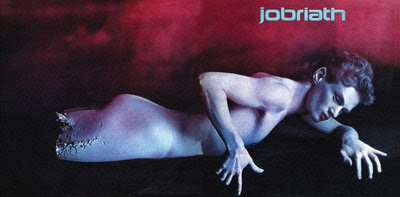
Style: Glam Rock
Country: us
Audio: lossless (flac, cue, log, scans)
time: 38'20" Size: 246 mb
Wiki:
The musical style of the album suggests a cross between Hunky Dory-era Bowie, Elton John's early 1970s albums and some decidedly Jaggeresque vocals. Lyrically the album combines science fiction imagery, sexuality themes and tributes to female movie icons. The daring (for 1973) opening track, "Take Me I'm Yours" is an overtly S&M fantasy ...take it out on me baby, I'm ready, for your troubles I'm expedient, you're the master, come on faster, to your nature I'm obedient...
Other highlights include the glamour praising, "I'maman" and the risque closing track, "Blow Away": ...and all the pretty boys lay in the passage of every song that etched its way from out my bleeding heart....blow blow blow away, blow blow blow away...its very gay to blow away
01. Take Me I'm Yours 4:17
02. Be Still 3:42
03. World Without End 3:47
04. Space Clown 2:38
05. Earthling 3:36
06. Movie Queen 1:54
07. I'm A Man 3:40
08. Inside 3:52
09. Morning Star Ship 3:31
10. Rock Of Ages 2:23
11. Blow Away 5:00
Personnel:
Jobriath
Billy Schwartz
Steve Love
John Syomis
Andy Munson
Ken Bichel
Peter Frampton
Carl Hall
Tasha Thomas
Rhetta Hughes
Heather Macrae
Zenobia
Peggy Nestor
Gerhard
...
Read more »
|
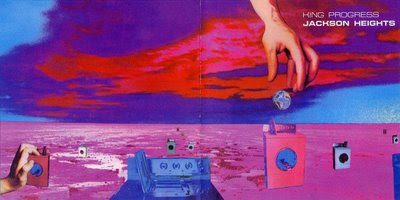 Style: psych Style: psych
Country: uk
Audio: lossless (ape, cue, log, scans, 212 mb), mp3 (320k, scans,87 mb )
time: 36'02
from Tapestry of Delights:
Formed by former Nice bassist and vocalist Lee Jackson when The Nice split in 1969. The name was taken from a district of New York. Musically they were more pop-orientated than The Nice, but they built up a good live reputation through relentless touring. Their debut album on Charisma made little impact although it did contain a fine version of an old Nice favourite Cry Of Eugene and another highlight was a similarly gentle, atmospheric song Insomnia. They re-emerged a couple of years later on Vertigo with 5th Avenue Bus, an album of melodic, well constructed and somewhat orchestrated pop-orientated material. This format was repeated on Ragamuffin's Fool, which was housed in a poster sleeve. After a final effort, Bump And Grind, they disbanded, but in 1974 Jackson formed Refugee, who cut an album for Charisma. After this he disappeared from the music scene for good. The Aardvark's Dave Watts also had a spell in Jackson Heights.
|
 Style: psych Style: psych
Country: us
Audio: lossless (ape, cue, log, scans)
time : 40'03" Size: 247 mb
from Fuzz Acid & Flowers:
This group was from Columbus, Ohio. They started out as a combination of two local groups, The Ebb Tides and Tree. They continued as Tree and won a recording deal from Mercury as a prize in a local band competition. Craig Fuller was added to the group after some of the material for the Ultimate Prophecy had already been written. The album credits two people who don't play a note on it - Phil Stokes on bass (the actual bass player was Kenny May - he was replaced after the recording), and Sterling Smith on keyboards (also joining after the recording, there are no keyboards on the album!). The line-up with Phil and Sterling did record some unreleased material. The album did very well in the St. Louis area as there was significant radio play there. After a period of time, J.D. Blackfoot left the group and the rest of the band continued to play as Osiris. J.D. assembled a new group and recorded the two Fantasy label LPs. Some of the musicians on those albums were in other sixties Columbus area bands like The Four O'Clock Balloon and The Myrchents. The group Osiris sort of metamorphosised into two other groups, one of them being the Load, who recorded an album Praise The Load, which is keyboard driven progressive rock like ELP. The Ultimate Prophecy album is arguably the best rock album ever from Ohio. Side one shows off Craig Fuller's country/folk roots which he expanded in Pure Prarie League. Side two features lyrics by J.D. Blackfoot and drummer Dan Waldron as they search for "the Answer". Most of the music on side two was composed by guitarist and original Tree member Jeff Whitlock. J.D. himself spent two years in New Zealand between 1972-74. He and his wife went there for a month's holiday in 1972 and liked it so much they stayed much longer. Indeed, his second album, The Song Of Crazy Horse, was recorded at Auckland's Stebbing Studio with local luminaries such as Billy Kristian on bass and Frank Gibson on drums. Indeed, it won New Zealand's 'Best Album Of The Year Award' in 1974 and remains highly collectable. He also released an EP, Nobody's Business/Let Her Go/Stay The Night Away/He Walks On Past (Bison B-77), 1984. Blackfoot, who changed his name to Van Dervort in 1970, sold the worldwide rights to Fantasy Records some years ago, but retained exclusive rights to the New Zealand market. Currently living in Columbus, Ohio, he still makes recordings. Craig Fuller and Phil Stokes later co-founded Pure Prairie League. Fuller was later a member of American Flyer together with Doug Yule (Velvet Underground), Eric Kaz (Blue Magoos) and Steve Katz (Blues Project). They released two albums for United Artists in 1975 and 1976 of average country rock produced by George Martin. Later still, Craig Fuller became lead singer for the reformed Little Feat in the early '90s.
|
 Style: heavy psych
Country: us
Audio: lossless (wv, cue, log, scans)
Size: 353 mb
Issue: MFSL UDCD 675
01. "Most Anything You Want" 3:44
02. "Flowers And Beads" 3:09
03. "My Mirage" 4:55
04. "Termination" 2:53
05. "Are You Happy" 4:31
06. "In-A-Gadda-Da-Vida" 17:10
07. "In-A-Gadda-Da-Vida (live version)" 18:51
08. "In-A-Gadda-Da-Vida (single version)" 2:53
Most Anything You Want Makes me Happy In-A-Gadda-Da-Vida!!!
|
 Style: prog, pdech Style: prog, pdech
Country: yugoslavia
Audio: lossless (flac, cue, log, scans)
time : 1:19'35" size: 497 mb
wiki :
Before the release of the second album, Draško Nikodijević left the band and was replaced by Slobodan Trbojević, who was an electric bass player from jazz band "Ptica" and Džuboks magazine journalist, as well. The second album was recorded from August 1979 until January 1980. Vrt svetlosti (The Garden Of Light) was produced by Aleksandar Pilipenko.[2] Cover art was designed by Vuković and designer Dejan Popov, but the first version of the cover was refused by PGP-RTB. The album featured five tracks: "Igrač" ("Dancer"), "Čarobnjaci" ("Wizards"), "Vrt svetlosti" ("The Garden of Light"), "Lunarni Modus" ("Lunar Modus") and "Sanjaš" ("You Are Dreaming").[2] "Vrt svetlosti" (The Garden Of Light,1980) was promoted live on TV at fashion show in hall Beko in Belgrade. In 1982 director Stanko Crnobrnja make a short movie about them called "Na svoj nacin". Their last public appearance was in 1985, in the Sava Center Concert Hall in Belgrade, on the occasion of the celebration concert dedicated to the anniversary of the music magazine ITD with music critics Aleksandar Zikic on guitar and Slobodan Boba Trbojevic on bass/vox. Recordings for the third album with the work title ISP III were never released, but can be heard on the band's official MySpace .
...
Read more »
|
 Style: prog
Country: Yugoslavia
Audio: mp3 (256k)
Size: 83mb
from Gibraltar:
Igra Staklenih Perli (79), Vrt Svetlosti (80), Inner Flow (9?, recorded '75), Soft Explosion Live (9?, recorded '78), Drives (9?, recorded '78)
This band was from Belgrade and this was part of Yugoslavia when they recorded their LPs. Igra Staklenih Perli (79) is a real collectors item here in Europe, and you have to pay some $100 if you find a mint copy of it. But it's worth that! They made some Psych-Prog stuff, maybe like Hawkwind, but much more intense and with better vocals (somewhere i read they have trippy guitars and a spacy organ!). There is also a bit of Pink Floyd (Meddle) in this music, but nevertheless they are quite unique. Highly recommended!! (if you can't find the original, there was also a repro available by Kalemegdan Disc one or two years ago!). Vrt Svetlosti (80) is said to be quite bad, but its impossible to find, so i can't tell you more about it. -- Achim Breiling Avant-garde space-rock, compared to Can. First 3 are archival material released in the '90s.
|
 Style: prog
Country: Netherlands
Audio: lossless (flac 680k)
Size: 349mb
Year: recorded 1972
|
 Style: estrada
Country: us
Audio: lossless (ape 848k + c)
Size: 211mb
|
 Style: prog
Country: finnland
Audio: lossless (flac 807k)
Size: 423mb
from Gibraltar :
A fine, albeit somewhat derivative, Finnish jazz-fusion group led by brothers Pekka (guitars, bass, drums) and Jussi (drums) Tegelman. Eponymously-titled first album finds the trio (w/keyboardist Jukka Rissanen) under the spell of the Mahavishnu Orchestra. This is actually a fine rookie effort, with interesting compositions and spirited playing by all. Rissanen sticks largely to the Hammond organ, using synths sparingly and to largely positive effect. Pekka Tegelman takes all the solos and has a distinctive trebly, quavery sound, and brother Jussi's drumming is crisp and sharp. The overall sound of the band on Finnforest reminds me a bit of Focus, and perhaps Arti E Mestieri. A full-time bassist (Jarmo Hiekala)and two keyboardists (Jukka Linkola and Pertti Pokki) were in the band for their second album Lähtö Matkalle, which again has a somewhat derivative sound, but on this release their inspiration seems to come from both Mahavishnu and Weather Report, circa Sweetnighter. Still, there's lots here for fusion aficionados to appreciate, including more fine guitar work from Pekka Tegelman, and some pretty memorable and distinctive compositions ("Elvin" on side 1). The keyboardists get to solo, but they're no great shakes, and one cut ("Lähtö Matkalle, part 1") begins with an overture played by a string quartet! For Demonnights, two saxophonists (Heikki Keskinen and Finnish jazz great Juhani Aaltonen) and a second guitarist (Jari Rissanen) were added, and Tuomo Helin and Jarmo Savolainen replaced the former bassist and keyboardists. Perhaps because of the horns, Demonnights has a more jazzy sound than the previous albums. However, the Weather Report influence now looms very large (especially in the Jaco-influenced bass of Tuomo Helin), and one cut ("Religions") is so derivative that Joe Zawinul could easily have won a plagiarism lawsuit. Even so, there's lots of great playing here, especially from the brothers Tegelman, and Juhani Aaltonen. Of all three records, Demonnights is the one I have listened to the most. Unlike a lot of fusion from the '70s and '80s, these records have a very under-produced, spontaneous feel which I find refreshing. -- Dave Wayne In addition to their three albums, Finnforest also released two singles and one track on the compilation album Rock & Roll juhlaa 2. All these songs are available on the 2-CD compilation Love Proge 2. The gauzy, layered keyboard lullaby "Ketto" (Pellicle) is the most memorable track. The two tracks from the band's 1973 single, "Tyhjyyteen syvyyteen" ("Into the Void, into the Deep") and "Sanomaton kirkkaus" ("Unspeakable Brightness"), are notable for being vocal-based and organ-heavy art rock clearly influenced by early Wigwam, rather different from the fusion approach the band adopted on their albums. In 1977 Pekka Tegelman also provided the compositions and Finnforest the backing band for Nuoruus ("Youth"), a slightly progressive-flavoured pop album by Petri Pettersson. -- Kai Karmanheimo
|
 Style: prog
Country: Czechia? Slovakia?
Audio: lossless (ape 857k)
Size: 366mb
any reviews from Gibraltar :
A Czech* group that has released 5 LP's of instrumental prog rock. The music tends to be a little oblique, with unusual chord progressions. The emphasis is on piano/keyboards. The LP's are entitled Biela Planeta ("The White Planet"), Dunajska Legenda, Huascaran, Generation , and, Piesen Z Hol ("Songs From Ridges"). A comparable group would be The Nice. * Editor's Note: I suspect that when this was written, "Czech" was intended to be simply a contraction of "Czechoslovakian". Thanks to Rastislav Galia for pointing out that Fermáta is a Slovakian band, not a Czech band, though they once were a Czechoslovakian band. -- Fred Trafton
|
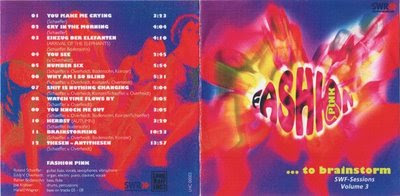 Style: улёт kraut
Country: germany
Audio: lossless (ape, cue, log, scans)
time: 1:04'50" Size: 395 mb
from the Crack in the Cosmic Egg :
A seminal band, formed in Baden-Baden 1968, with the line-up Roland Schaeffer (vocals, guitar, saxophone, bass), Eddy von Overheidt (organ, vocals), Helmut Rusch (guitar), Jьrgen Argast (bass) and Joachim Koinzer (drums), born out of local pop and beat bands: Pop Mops, Reaction, Blues Act and The Edwardians. During their history they moved from blues and psychedelic rock to more complex original fusion, transforming into Brainstorm.
...
Read more »
|
 Style: prog
Country: germany
Audio: lossless (ape, cue, log, scans)
Size: 226mb
A Guide to German Progressive & Electronic Rock :
'This is the story of each of us, the story of Autumn, of life's last faithful breath, which contains both the sadest and the most terrified sensation a living individuum will ever be able to feel, before the everlasting Winter gently turns himself to nothing.' So ran the liner notes of Fading Beauty (1974), melancholia very much like the track "Gravedigger" by the British group Janus. However, musically this was something else - an "Autumn fantasia" in two long movements.
01. Autumn Fantasia - 1st Movement - Fading Beauty 12:10
02. Autumn Fantasia - 2nd Movement - Lingering Gold 10:30
03. Tharsis 21:38
...
Read more »
|
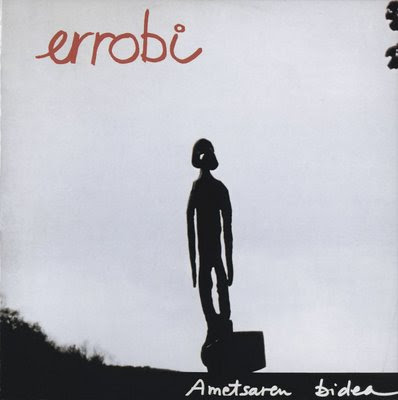
Style: folk-prog
Country: spain
Audio: lossless (flac, cue, log, scans)
Size: 272 mb
The Spanish Progressive Rock Encyclopedia's review :
Tipical basque progressive band from the label Elkar in the 70's, although their third record (the best one) was released by Xoxoa. Folkie ambiences and melancolic atmospheres. Progressive rock with lots of folk influences. Sung in bask laguage. In 2002 a re-release in vinyl has been made hthrough the label Guerssen.
01. "Alboka" 2:52
02. "Ametsaren Bidea" 17:40
03. "Andere" 13:30
04. "Oraino" 7:00
Beñat Amorena (drums and vocals),
Mikel Ducau (vocals, acoustic and electric guitar and keyboards),
Anje Duhalde (guitar and voclas)
Mikel Halty (bass)
|
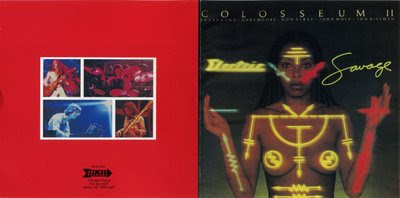 Style: prog
Country: uk
Audio: lossless (ape 822k)
Size: 263mb
Issue: 1993 One Way MCAD 22081
from Gibraltar:After the departure of David Greenslade from Colosseum in his quest for a solo career, drummer Jon Hiseman teamed up with a very talented bunch of musicians to form Colosseum II. Powered by the guitars of Gary Moore and the keyboards of Don Airey, they released a trio of albums, of which these are the best two. Musically, they straddle the boundary between jazz fusion and rock in very much the same style as Brand X, Arti+Mestieri, etc., with an increased keyboard presence. With the exception of a couple of tracks, most of their work is all-instrumental. Jon Hiseman's drum and percussion work also contributes greatly to the intensity of the music, all of which is anchored by John Mole's bass. Electric Savage was released at the end of 1976. As noted in the sleeve, "Just hours before Christmas 1976 and a few hours after our return from a European tour, our exhausted crew set up the gear ... for seven days we continued playing the music live ...." The recording captures the musical virtuosity of the band members, and their ability to present a powerful live performance. Wardance was released in 1977, and was a more mature work with tightly executed compositions written around the dueling guitar and keyboard leads of Moore and Airey. In terms of overall effect this might have the edge over Electric Savage, but only slightly. Additionally, Don Airey's keyboard work is on equal footing with Gary Moore's guitars, unlike Electric Savage in which Moore's guitar was more prominent in the mix. Jon Hiseman tries it for a third time this time enlisting newcomers Gary Moore (guitar), Don Airey (keyboards), and Mike Starrs (vocals). Starrs lasted for only one album as the band made a change to a more instrumental approach. Strange New Flesh is an interesting first release by the new lineup. The opening track, "Dark Side of the Moog" - a humerous tribute to Pink Floyd, shows a band primed and ready for an instrumental performance. The second track, a cover of Joni Mitchell's "Down to You" is a bit of a letdown after the solid opener, but does redeem itself by Don Airey's extended keyboard improvisation in the middle. The remainder of the album much the same, great instrumental passages surrounded by vocal pieces that seem out of place. All in all a nice album, but nothing to rush out and buy. Electric Savage was recorded just before Christmas in 1976 and shows a Colosseum II that has corrected all the shortcomings from the first album. Gone are the laborous vocal tracks with Gary Moore handling the lone brief vocal track. Instead you will find relentless interplay between Moore and Airey with the listener left trying to decide who really won. This is high enery progressive fusion in the same vein as Return to Forever or Mahavishnu Orchestra sans violin. You have not heard the best of Gary Moore unless you have heard this album. Very highly recommended. Wardance features the same lineup as Electric Savage and is really more of the same brand of fierce fusion. All three releases are available as Japanese or US domestic CD reissues. Variations is an Andrew Lloyd Webber album of arrangements of a theme written by classical composer Nicolò Paganini. He enlisted all of the members of Colosseum II (Hiseman, Moore, Airey & Mole) as well as Rod Argent, Phil Collins, and Herbie Flowers. The 2nd track, "Theme (Paganini Caprice in A Minor No. 24) and Variations 1-4" was used as the theme music to ITV's "South Bank Show". -- Dave Lane
...
Read more »
|

genre: prog
quality: lossless (flac, cue, log, scans)
size: 368 mb
ProgArchives:
This delightful Dutch band had its roots in 1965, when Rob van Wageningen (flute, saxophone) and Peter (bass) and Winky Abbink (drums) brothers played together in a band called Free Art Group, along with other musicians. This band played music, mostly inspired by classic and avant-garde jazz musicians, namely, Ornette Coleman, Sun Ra and John Coltrane.
In 1968, they were joined by Tony Schreuder in bass, renaming themselves Group 67/68, and Peter Abbink switching to guitar. During concerts in Felix Meritis they met Ruud Tegelaar, manager of center Fantasio, who offered them to become the house band in Fantasio. They also changed their name once again to Ahora Mazda, a corrupt version of the chief deity of Zoroastrianism, Ahura Mazda. (Zarathustra religion is also called "Mazdaizm.) The name was suggested by Tegelaar.
The band was known for their long jam sessions, but they recorded shorter and more arranged songs for their self-titled debut (and only) album. The album was recorded in three days and released on May 31, 1970.
During the next year, Tony Schreuder and Winky Abbink had some problems playing and rehearsing. At concerts they needed the help of substitute musicians, like guitarist Jan Landkroon and Michiel Krijnen. Abbink was replaced by Paul van Wageningen, who played drums in Groep 1850. Because of these difficulties and the lack of atmosphere that came with the substitutes the band ceased to exist.
Their music is a reflection of the "spacy" music (as implied by the name of the first track in the album) in Netherlands, yet, they owe more to the Kosmische Music scene of Germany than the symphonic approach of their fellow countrymen such as Focus, and of those which were yet to come, like Kayak and Finch. Though the tracks are relatively short (the longest clocking shortly over 9 minutes), they still retain the "jamming" and "experimental" features, which are landmarks of the kosmische Krautrock sound. The CD reissue adds 5 shorter bonus tracks, which still have the same characteristics.
Highly recommended for psyche/space/krautheads!
Bilek Guler, Istanbul
|
 genre: psych genre: psych
country: uk
quality: lossless (flac, cue, log, covers)
time: 45'17" size: 259 mb
misc.: live
01. Jungle drums 6:22
02. Inconstant wisdom 2:49
03. Water 6:04
04. The finger 6:26
05. Early morning 4:49
06. Waterfall 4:02
07. Beholdin' 9:02
08. Water is my friend 2:32
09. Elementallity 3:11
- Arthur Brown / vocals, recorder
- Rob Tait / drums
- "Goodge" Harris and Mystery Man / keyboards
- Bob Ellwood and Mystery Man / guitars
- Dave Ambrose / bass
- Pete Bailey / percussion
|

genre: psych
country: uk
quality: lossless (ape, cue, log, booklet scans)
time: 1:01'11" size: 400 mb
misc.: 2003
|

genre: psych
country: uk
quality: lossless (flac, cue, log, scans)
time: 1:02'57" size: 401 mb
misc.: 1993
Tapestry Of Delights:
Galactic Zoo is an album of chaos and mayhem, with church - like mantras along the way. Kingdom Come is similarly demented. Journey is more song-based and there are some great guitar riffs on the closing track Come Alive. Many regard it as one of the best 'space-rock' albums of all time. The recently-released Jam however, is a spontaneous, rambling set, which veers between jazz and hippie rock and is only for diehard fans.
The Kingdom Come live performance was as entertaining as that of Brown's 'Crazy World' band. Arthur would come on resplendent in a set of traffic lights or would climb into a giant syringe on stage. For the band's Journey album they all wore gold paint and used a Bentley drum machine rather than a conventional drummer. Andy Dalby was only sixteen when he joined the band having already had a stint with the Spirit Of John Morgan. He later played for Kiki Dee, Vapour Trails and went on to production work. Arthur Brown at his best possessed one of the great voices of rock music and his stage shows were never dull. ~ (Bill Stow/Vernon Joynson)
|

genre: blues, prog
country: uk
quality: lossless (flac, cue, log, scans)
time: 45'36" size: 328 mb
misc.: 1993 Repertoire
the Tapestry of Delights:
A blues-rock outfit whose albums are now rare. Their power blues-rock was clearly influenced by Cream and certainly the CD reissues are worth a spin. The flip side to their sole 45 is quite good boogie-orientated music with some punk leanings (years before punk), and has subsequently resurfaced on Syde Trips, Vol. 5 along with Soon There Will Be Everything and Lost Alone.
In 1969 they supported Yes at the Marquee, backed Freddie King and toured Europe. Lou Martin left after the first album and a handful of BBC Radio sessions (including a John Peel session) and later played with Rory Galagher. They became Salt in 1974. ~ (VJ/CA/JN).
|
|













































+-++Mark+III+-+The+Final+Concerts+-+Front.jpg)























